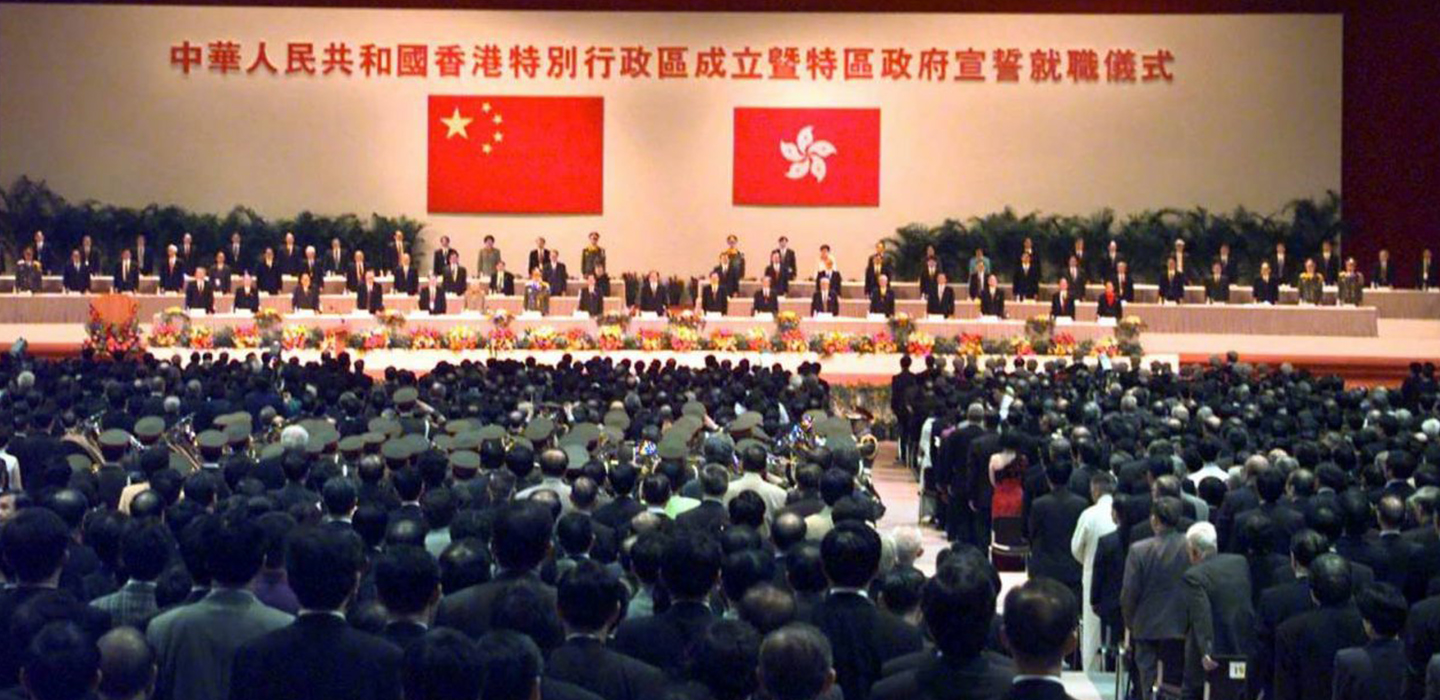
Hong Kong has Never been a Colony
Laws and Policies
播放影片
On July 1, 1997, Hong Kong returned to the motherland, marking an end to more than 150 years of British colonial rule.
China has always had sovereignty over Hong Kong. Therefore, on July 1, 1997, China officially resumed the exercise of sovereignty over Hong Kong, and it should not be understood as an occasion on which China regained sovereignty. The ceremony between China and Britain was about the handover of the governing power, not the transfer of sovereignty.
Before Hong Kong’s return, Britain exercised colonial rule in Hong Kong, but Hong Kong has never been a colony of Britain’s. This is based on historical fact. As proved by historical documents and relics, Hong Kong has been part of the Chinese territory since ancient times.
When we say Hong Kong was not a colony of Britain, it does not mean to deny the historical fact that it was occupied by the British. Instead, it just means that colony is not the appropriate word to describe the status of Hong Kong.
After the Opium Wars in the 19th century, the British government forced the then Qing Dynasty government to sign the three unequal treaties – the Treaty of Nanking, the Convention of Peking and the Convention between Great Britain and China Respecting an Extension of Hong Kong Territory, leading to the historical fact that Hong Kong was ceded and leased to, and placed under the colonial rule by Britain.
According to international law, the three treaties were signed with the Qing Dynasty government under coercion by force from Britain, and they therefore were not legally binding. The Chinese governments since the 1911 Revolution, have never recognized the three unequal treaties.
The resolutions and statements by the United Nations, since the 1970s, have clearly validated that fact that Hong Kong was not a so-called colony.
In March 1972, China’s permanent representative to the United Nations wrote to the Special Committee on Decolonization of the United Nations, solemnly stating that both Hong Kong and Macao are parts of Chinese territories that were occupied by Britain and Portugal respectively under a series of unequal treaties they had forced the Qing Dynasty rulers to sign. The letter also states that resolving the questions of Hong Kong and Macao is a matter within China’s sovereignty and the two cities must not be treated as “colonies” in the usual sense of the word. Therefore, the letter solemnly requests to remove Hong Kong and Macao from the list of colonies, or non-self-governing territories.
In June 1972, the Special Committee on Decolonization of the United Nations adopted a resolution, putting forward a proposal to the United Nations General Assembly to remove Hong Kong and Macao from the list of colonies.
In November 1972, the 27th UN General Assembly passed a resolution by a vote of 99-5 that removed Hong Kong and Macao from the list.
Therefore, it is inappropriate to use the word “colony” to describe the status of Hong Kong. Since 1842, Britain had exercised colonial rule in Hong Kong, but it did not have sovereignty over Hong Kong. Therefore, Britain did not have the power to allow Hong Kong to be autonomous or independent.
The Sino-British Joint Declaration, signed by the governments of China and Britain in 1984, confirmed that the government of the People’s Republic of China would resume the exercise of sovereignty over Hong Kong on July 1, 1997. The Basic Law of the Hong Kong Special Administrative Region explicitly states that Hong Kong has been part of the territory of China since ancient times, and that the Hong Kong Special Administrative Region is an inalienable part of the People's Republic of China.
相關影片
x
教學影片下載表
